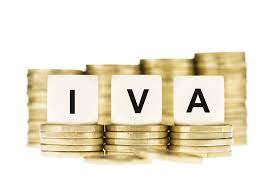IVA Pros and Cons | Call : 03338803165.
What is an IVA, Know About IVA Pros and Cons?
What is Individual Voluntary Arrangements, or IVAs, are a type of voluntary agreement. It's a formal, legally enforceable agreement that freezes interest and charges on your unsecured debts for a set length of time, IVA Pros and Cons allowing you to pay your creditors a manageable sum over time. Any outstanding unsecured debt will be written off if the project is completed successfully. An IVA can shield you from creditors taking legal action against you, such as filing for bankruptcy or filing a court application for payment default. for
Pros and
Cons of IVA
Individual Voluntary Arrangements (IVAs) contain IVA Pros and Cons hat should be weighed
equally before making an application. It can be a tempting option to
bankruptcy, with fewer long-term consequences for you and your finances. There
are no upfront expenses with us, creditor pressure and interest will be stopped
for the period of the arrangement, and any unpaid debt will be written off once
the arrangement is completed. However, you should be aware that an IVA is a
legally enforceable agreement that must be approved by your creditors, and the
terms of your agreement will be made public It will also have a negative impact
on your credit score. For IVA Pros and Cons UK
Pros
· Your interest and other charges on your debt(s) will be frozen if you enter into an IVA. All interest and charges on your debt are frozen once your IVA is authorised, so you don't have to worry about the amount you owe increasing. This is especially crucial given the length of an IVA Pros and Cons (typically 5 years). If your interest rate had continued to rise over the course of these five years, you would have ended up paying a lot more money in interest.
· In comparison to other choices you may be considering, an IVA is quite inexpensive. The fantastic thing about an IVA is that you'll be working directly with an insolvency practitioner who will make sure you're being treated fairly.
· The fantastic thing about an IVA is that you'll be working directly with an insolvency practitioner who will make sure you're treated fairly. You won't be pushed into paying more than you can afford since your insolvency practitioner will make sure that doesn't happen. You will only be required to make payments that you can afford on a monthly basis.
· You'll be covered by the law. An IndividualVoluntary Arrangement is a legally enforceable arrangement that must be followed by both you and your creditors. All of your creditors will be obligated by the provisions of your IVA proposal after it has been accepted. This implies they won't be able to approach you for any payments outside of the contract.
Cons
Although an IVA may appear to be an appealing option up to this point, you should be aware that it does have some drawbacks. I've included a list of them below:
· An IVA will have a negative influence on your credit score. The IVA will be recorded in your credit file and will have a negative impact on your credit rating for six years after it begins.
· Your name will also be added to the Individual Insolvency Register, a public database that shows you've taken out an IVA. Lenders will have access to this information. Because of your name in the Individual Insolvency Register and your poor credit rating, you will have a hard time obtaining any sort of credit while your IVA is active.
IVA Advantage
For those wishing to pay off their obligations while avoiding bankruptcy, an IVA may be a viable choice.
1. Even if creditors vote no, they are still obliged by your proposition.
2. Creditors who have made unsecured loans are unable to pursue any further action.
3. As long as you keep up with your payments, interest is normally frozen.
4. Once the IVA is in place, all debt interest and creditor pressure are suspended. If an IVA is approved, it is binding on all parties, even if one or more creditors did not agree to the proposal. After the agreement is in place, the IP will deal with all of your creditors, saving you time and money.
IVA disadvantages
So, those are some of the most important IVA benefits. Before you file for an IVA, be sure you understand the ramifications of the agreement and how it will affect you and your finances in the future.
1. Your IVA is recorded in a public database.
2. In order to prepare your plan and obtain your creditors' approval, the insolvency practitioner may request money in advance.
3. If your home has some equity (worth) after taking into account the mortgage(s), you will most likely have to remortgage the property to pay for your portion, usually in the fifth year of your IVA. If you are unable to obtain a remortgage, you may be forced to make monthly or quarterly payments from your salary for up to another year.
4. To be successful, the IVA must receive permission from creditors who own at least 75% of the debt's worth. If creditors do not believe the IVA proposal would provide them with a higher return than bankruptcy or another debt relief alternative, they may reject it. You'll have to look into other choices after that.
Low Interest Rates
You may be having difficulty paying interest since it is extremely expensive and you are unable to afford it. You will not have to pay a high rate of interest if you are approved for a debt pros and cons of IVA. You just have to pay your creditor the agreed-upon amount.
Your lender is prohibited by law from imposing any additional fees, such as late fees. It's important to remember that the agreement covers all of your accounts. As a result, your creditor has no legal authority to demand further money from you.
Just Dial National Debt helpline number 03338803165 for IVA Advice in UK. We have expert team for providing best solution for your financial problems.
.jpg)

.jpg)

Comments
Post a Comment